
Translating to "Gold", the trio of Kurt Liedwart on modular synthesizer abd cracked everyday homemade electronics, Julien Ottavi on computer, and Keith Rowe on guitar & electronics recorded this album during Poland's Sanatorium Of Sound 2017 festival, bridging EA Improv, noise, minimal electronics and contemporary music in two large works.
In Stock
Quantity in Basket: None
Log In to use our Wish List
Shipping Weight: 3.00 units
EU & UK Customers:
Discogs.com can handle your VAT payments
So please order through Discogs
Sample The Album:
Kurt Liedwart-modular synthesizer, cracked everyday homemade electronics
Julien Ottavi-computer
Keith Rowe-guitar, electronics
Click an artist name above to see in-stock items for that artist.
UPC: 5056198930365
Label: Mikroton Recordings
Catalog ID: cd 68
Squidco Product Code: 25838
Format: CD
Condition: New
Released: 2018
Country: Russia
Packaging: Cardboard Gatefold
Recorded in Sokolowsko, Poland, in August 2017, by Kurt Liedwart.
"L'Or is a polyptychal album recorded during Sanatorium Of Sound 2017 festival in Sokolowsko in Poland. L'Or means "gold" in French and both tracks were called with words with the same meaning: "Aurum", in Latin, and "Золото", in Russian.
Two tracks comprise around five hence the polyptychal theme of the album, some of them sound harsh, some resemble quiet zones. Keith Rowe takes the middle area between Kurt Liedwart's work with modular synthesizer and cracked homemade and everyday electronics and Julien Ottavi's preoccupation with his computer and objects.
The structure looks really similar like a caduceus, ever evolving lines, vibrations, sonic clusters around Rowe's clicks and occasional whisper of his guitar and radio. The album takes a no-man's land between EAI, noise, minimal electronics and contemporary music."-Mikroton

The Squid's Ear!
Artist Biographies
• Show Bio for Kurt Liedwart "Kurt Liedwart, born in 1977 in Moscow, USSR, is an artist, improviser, music producer, label owner and founder of the Moscow-based experimental and electroacoustic improvised music label Mikroton Recordings. He has developed his own art and sound that cross genres, mixing music practices such as electroacoustic and improvised music, noise and glitch, and art movements such as actionism and Fluxus. He plays a wide-ranging array of instruments such as analog synthesizers, electronics, light-controlled electronics, electromagnetic devices, laptop, sinewaves, field recordings, percussion processed electronically in real time. Plays and records solo and in various formations with Martin Taxt, Arturas Bumšteinas, Ernesto Rodrigues, Guilherme Rodrigues, Nuno Torres, Abdul Moimême, Julien Ottavi, Heddy Boubaker, Alexandre Losada, Jason Kahn, Burkhard Beins, Alexander Markvart, Sergey Kostyrko, Birgit Ulher, Gregory Büttner, Piotr Tkacz, Gerard Lebik, Annette Krebs, Klaus Filip, Noid, Norbert Möslang, Keith Rowe, Alfredo Costa Monteiro, Miguel A. Garcia, Xavier Lopez, Dmitry Krotevich, Nicola Ratti, Alberto Boccardi, Hannes Lingens, Pierre Borel, Radu Malfatti, Alexei Borisov, Ignaz Schick, Stefano Pilia, Thomas Buckner, Ilia Belorukov, Andrey Lomakin, Edita Fyl, Oleg Makarov, Phil Raymond, Bruno Duplant, Pedro Chambel, Andrey Popovsky, Konstantin Sukhan, Alexey Sysoev, Brinstaar, Denis Sorokin, Paul Roth, Ian Douglas-Moore and others. Various recordings released on his own Mikroton Recordings as well as on Intonema, Hideous Replica, Copy For Your Records and so on. Played at various festivals: Abracadabra (Moscow), Noise & Fury 2008 (Moscow), XXII Festival Of Modern Art (Bryansk), Love Live Electronic Festival (Moscow), Ru.Noise 2009 (Kiev), Ad Libitum 4 Festival (Warsaw), Ruby Attack Festival (Moscow), Prepared Environments on Prepared Wednesdays 2010: Informal Tribute to John Cage (Moscow), Prepared Environments on Prepared Wednesdays 2011 (Moscow), Poetronica 2010 (Moscow), Poetronica 2011 (Moscow), Teni Zvuka 2011 (Saint-Petersburg), Noise & Fury 2011 (Moscow), Alt+E Fest 2011 (Moscow), Prepared Environments 2012 (Moscow), Teni Zvuka 2013 / Mikroton Live 2 (2013 | Moscow, Saint-Petersburg), Prepared Environments 2013 (Moscow), Noise & Fury 2013 (Moscow, Yaroslavl, Saint-Petersburg), Teni Zvuka 2014 / Mikroton Live 3 (2014, Moscow, Saint-Petersburg), Der blöde dritte Mittwoch (2014, Vienna), Music Of Now (2015, Saint-Petersburg), Escucha! (2016, Madrid). As a music critic he wrote for Billboard Russian Edition, Electronic Music Magazine, Contemporary Music Magazine, Tonschrift., Colta." ^ Hide Bio for Kurt Liedwart • Show Bio for Julien Ottavi "Julien Ottavi: Composer, Artist, curator and PhD student on new music and network A mediactivist, artist-researcher, composer / musician, poet and tongues destroyer, experimental film maker and anarchitect, founder and member of Apo33, Julien Ottavi is involved in research and creative work, combining sound art, real-time video, new technologies and body performances. Since 1997, he develops a composition work using voice and its transformation through computer. Active developer of audio/visual programs with Puredata, he has also developed since many years DIY electronics (radio transmitters, oscillators, mixers, amplifiers, video transmitters...etc) in the perspective of knowledge sharing on technological development. Main developer for the Gnu/Linux operating system APODIO for digital art and A/V & streaming diffusion. His practices is not limited to the art spheres but crosses different fields from technological development to philosophy / theoretical research, biomimetic analysis & experimentation. Since many years he reflects on the relations between experimental practices and collective practices within the creation of autonomous collective groups, putting in question the authorship strategy of the "art ideology". Julien Ottavi is part of a generation of audio artists to emerge in the 90's that indicated some of the directions that music and soundart is taking. While at art school, he organized a series of concerts, bringing international artists from the experimental scene to Nantes, drawing touring musicians to movements happening outside of Paris. This became not just a destination but a nexus for collaborations. This resulted for example in the group Formanex to perform graphical scores of electro-acoustic music, and in Apo33, an artists collective to facilitate, nurture, and disseminate creative audio practice. In this way, Julien represents the energy and initiative of a present day artist - activist through practice, organizing as performance, publishing as networking, open source and open aesthetic. This fluidity of working across boundaries of style and role are seen in his music, physical with computer, performative and reflective. (introduction by Atau Tanaka)" ^ Hide Bio for Julien Ottavi • Show Bio for Keith Rowe "tabletop guitarist and painter. Rowe is a founding member of both the influential AMM in the mid-1960s (though in 2004 he quit that group for the second time) and M.I.M.E.O. Having trained as a visual artist, Rowe's paintings have been featured on most of his own albums. After years of obscurity, Rowe has achieved a level of relative notoriety, and since the late 1990s has kept up a busy recording and touring schedule. He is seen as a godfather of EAI (electroacoustic improvisation), with many of his recent recordings having been released by Erstwhile Records. Rowe began his career playing jazz in the early 1960s-notably with Mike Westbrook and Lou Gare. His early influences were guitarists like Wes Montgomery, Charlie Christian and Barney Kessel. Eventually, however, Rowe grew tired of what he considered the form's limitations. Rowe began experimenting, slowly and gradually. An important step was a New Year's resolution to stop tuning his guitar-much to Westbrook's displeasure. Rowe gradually expanded into free jazz and free improvisation, eventually abandoning conventional guitar technique. This change in his approach to guitar, Rowe reports, was partly inspired by a teacher in one of his painting courses who told him, "Rowe, you cannot paint a Caravaggio. Only Caravaggio can paint Caravaggio." Rowe reports that after considering this idea from a musical perspective, "trying to play guitar like Jim Hall seemed quite wrong." For several years Rowe contemplated how to reinvent his approach to the guitar, again finding inspiration in visual art, namely, American painter Jackson Pollock, who abandoned traditional painting methods to forge his own style. "How could I abandon the technique? Lay the guitar flat!" Rowe developed various prepared guitar techniques: placing the guitar flat on a table and manipulating the strings, body and pick-ups in unorthodox ways to produce sounds described as dark, brooding, compelling, expansive and alien. He has been known to employ objects such as a library card, rubber eraser, springs, hand-held electric fans, alligator clips, and common office supplies in playing the guitar. A January 1997 feature in Guitar Player magazine described a Rowe performance as "resemble a surgeon operating on a patient." Rowe sometimes incorporates live radio broadcasts into his performances, including shortwave radio and number stations (the guitar's pick-ups will also pick up radio signals, and broadcast them through the amplifier). AMM percussionist Eddie Prévost reports that Rowe has "an uncanny touch on the wireless switch", able to find radio broadcasts which seem to blend ideally with, or offer startling commentary on, the music. (Prévost, 18). On AMMMusic, towards the end of the cacophonous "Ailantus Glandolusa", a speaker announces via radio that "We cannot preserve the normal music." Prevost writes that during an AMM performance in Istanbul, Rowe located and integrated a radio broadcast of "the pious intonation of a male Turkish voice. AMM of course, had absolutely no idea what the material was. Later, it was complimented upon the judicious way that verses from The Koran had been introduced into the performance, and the respectful way they had been treated!" In reviewing World Turned Upside Down, critic Dan Hill writes, "Rowe has tuned his shortwave radio to some dramatically exotic gameshow and human voices spatter the mix, though at such low volume, they're unintelligible and abstracted. Rowe never overplays this device, a clear temptation with such a seductive technology - the awesome possibility of sonically reaching out across a world of voices requires experienced hands to avoid simple but ultimately short-term pleasure. This he does masterfully, mixing in random operatics and chance encounters with talkshow hosts to anchor the sound in humanity, amidst the abstraction." " Some accounts report that Rowe's guitar technique was an influence on Pink Floyd founder Syd Barrett: "Taking his cues from experimental guitarist Keith Rowe of AMM, Barrett strived to push his music farther and farther out into the zone of complete abstraction." Rowe has worked together with numerous composers and musicians, including Cornelius Cardew, Christian Wolff, Howard Skempton, Jeffrey Morgan, John Tilbury, Evan Parker, Taku Sugimoto, Otomo Yoshihide, Sachiko M, Oren Ambarchi, Christian Fennesz, Burkhard Beins, Kurt Liedwart, Toshimaru Nakamura, David Sylvian and Peter Rehberg. ^ Hide Bio for Keith Rowe
4/9/2025
Have a better biography or biography source? Please Contact Us so that we can update this biography.
4/9/2025
Have a better biography or biography source? Please Contact Us so that we can update this biography.
4/9/2025
Have a better biography or biography source? Please Contact Us so that we can update this biography.
Track Listing:
1. Aurum 39:44
2. 16:26
Improvised Music
Free Improvisation
Electro-Acoustic
Electro-Acoustic Improv
Organized Sound and Sample Based Music
Trio Recordings
European Improvisation, Composition and Experimental Forms
Keith Rowe
New in Experimental & Electronic Music
Search for other titles on the label:
Mikroton Recordings.

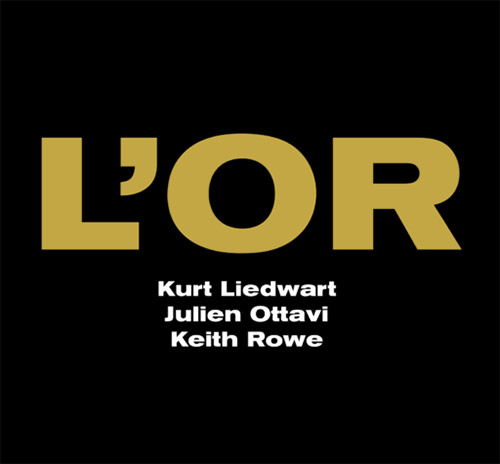


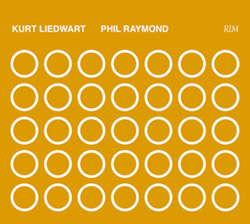

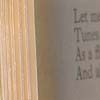
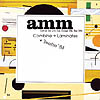
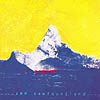

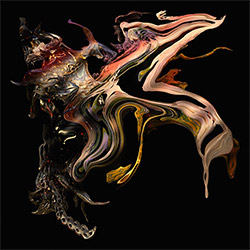

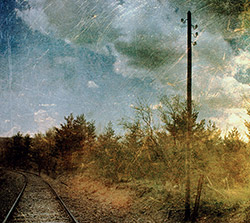
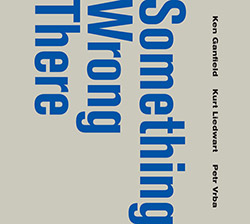




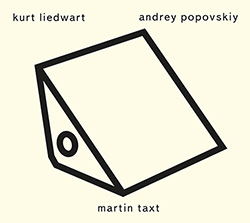
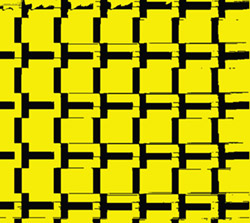
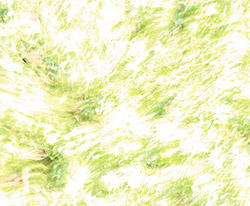
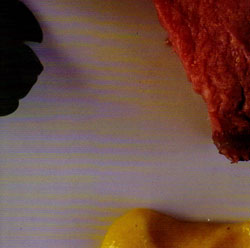

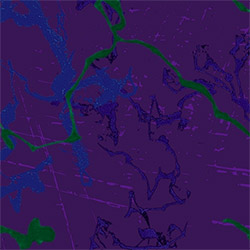
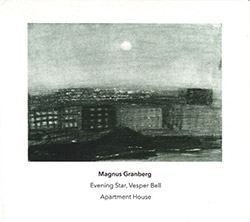
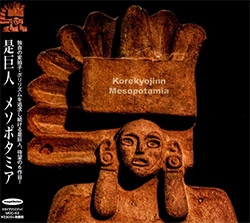

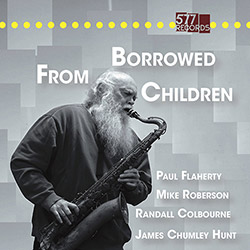



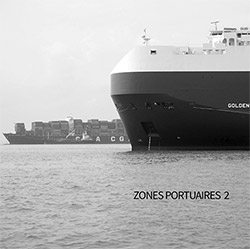
![111 (Michelle / Villamil): Live at Opus 40 [CASSETTE]](https://www.teuthida.com/productImages/misc4/35986.jpg)
![del Pino, Francisco / Charlotte Mundy: The Sea [CASSETTE]](https://www.teuthida.com/productImages/misc4/35987.jpg)

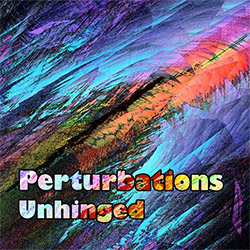

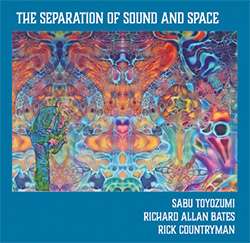


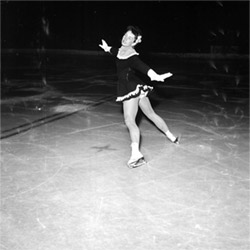
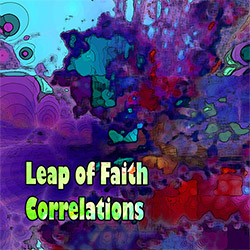

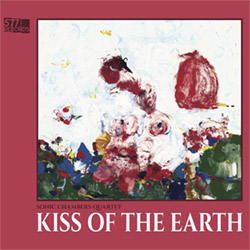

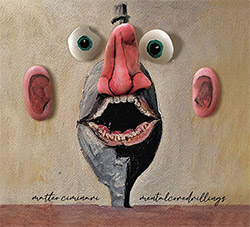
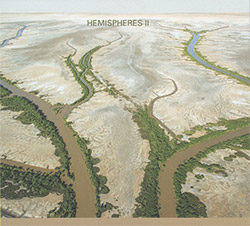
![Niblock, Phill / Anna Clementi / Thomas Stern: Zound Delta 2 [VINYL]](https://www.teuthida.com/productImages/misc4/34623.jpg)
![Yoko, Ono / The Great Learning Orchestra: Selected Recordings From Grapefruit [2 CDs]](https://www.teuthida.com/productImages/misc4/35841.jpg)

![Brotzmann, Peter / John Edwards / Steve Noble / Jason Adasiewicz: The Quartet [2 CDs]](https://www.teuthida.com/productImages/misc4/35975.jpg)
![Brotzmann, Peter / John Edwards / Steve Noble / Jason Adasiewicz: The Quartet [VINYL 2 LPs]](https://www.teuthida.com/productImages/misc4/35976.jpg)
![Thomas, Pat: The Solar Model of Ibn-Al Shatir [VINYL]](https://www.teuthida.com/productImages/misc4/36044.jpg)
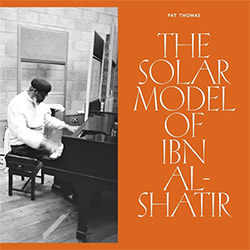



![Rodrigues, Ernesto / Nuno Torres / Guilherme Rodrigues: Whispers In The Moonlight - In Seven Movements [2CDs]](https://www.teuthida.com/productImages/misc4/35765.jpg)



![Cocks, Laura: FATHM [VINYL]](https://www.teuthida.com/productImages/misc4/36055.jpg)













![Schindler, Udo / Sandy Ewen / Damon Smith: Munich Sound Studies Vols. 4, 5 & 6 [3 CDs]](https://www.teuthida.com/productImages/misc4/35966.jpg)
![Turbulence Orchestra & Sub-Units: Smear Out the Difficulties (Double Live) [2 CDs]](https://www.teuthida.com/productImages/misc4/36048.jpg)

![Myers, David Lee : Tin Drop Tear [BOOK w/ DOWNLOAD]](https://www.teuthida.com/productImages/misc4/36030.jpg)

![Ackerley / Prymek / Turner: All Hope With Sleeping Minds [CASSETTE]](https://www.teuthida.com/productImages/misc4/35950.jpg)








![Olencki, Weston : Pearls Ground Down To Powder [VINYL]](https://www.teuthida.com/productImages/misc4/35956.jpg)
![Myers, David Lee: Oculus [2CDs]](https://www.teuthida.com/productImages/misc4/35857.jpg)


![dustsceawung: dustsceawung [CASSETTE w/ Download]](https://www.teuthida.com/productImages/misc4/35753.jpg)




![Halls of the Machine: Atmospheres For Lovers And Sleepers [CASSETTE w/ DOWNLOAD]](https://www.teuthida.com/productImages/misc4/35806.jpg)











![Zorn, John / JACK Quartet: The Complete String Quartets [2 CDs]](https://www.teuthida.com/productImages/misc4/35609.jpg)

![Lonsdale, Eden: Dawnings [2 CDs]](https://www.teuthida.com/productImages/misc4/35480.jpg)







![Sanna, Claudio: Compositori Sardi Contemporanei II [2 CDs]](https://www.teuthida.com/productImages/misc4/35317.jpg)







![Zurria, Manuel: Fame di Vento [3 CDs]](https://www.teuthida.com/productImages/misc4/35167.jpg)

![Electric Bird Noise / Derek Roddy: 8-10-22 [CD EP]](https://www.teuthida.com/productImages/misc4/35970.jpg)








![Elephant9 : Mythical River [VINYL]](https://www.teuthida.com/productImages/misc4/34624.jpg)



![Elephant9 with Terje Rypdal: Catching Fire [VINYL 2 LPs]](https://www.teuthida.com/productImages/misc4/35355.jpg)
![Deerlady (Obomsawin, Mali / Magdalena Abrego): Greatest Hits [VINYL]](https://www.teuthida.com/productImages/misc4/34876.jpg)







![Surplus 1980: Illusion of Consistency [CD]](https://www.teuthida.com/productImages/misc4/35069.jpg)
![Staiano, Moe: Away Towards the Light [VINYL + DOWNLOAD]](https://www.teuthida.com/productImages/misc4/35037.jpg)



![Caveira (Gomes / Sousa / Abras / Ferrandini): Ficar Vivo [VINYL]](https://www.teuthida.com/productImages/misc4/34643.jpg)
![Coley, Byron: Dating Tips for Touring Bands [VINYL]](https://www.teuthida.com/productImages/misc4/17906.jpg)

![Lost Kisses: My Life is Sad & Funny [DVD]](https://www.teuthida.com/productImages/misc4/lostKissesDVD.jpg)